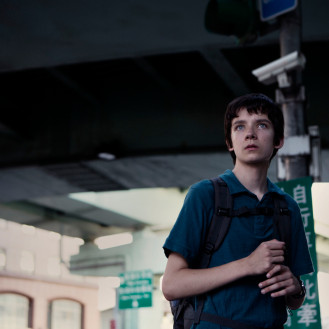Hot on the heels of Gaspar Noé’s intense split-screen short Lux Æterna is the filmmaker’s feature-length split-screen endeavour Vortex, and I appreciate the opportunity to watch and review these movies (pretty much) back-to-back.
Lux Æterna used a split-screen narrative to provide wide coverage of a film shoot sinking into chaos. Noé showed potential with this method of visual storytelling, but the short became repetitive considering the standard use of this technique during a looping plot. With Vortex, the story has much more range and the split-screen technique finds ways to elaborate on two heartbreaking character studies that are running parallel with each other. As was the doomed production of Lux Æterna, Lui (renowned horror director Dario Argento) and Elle (Françoise Lebrun) are facing their own maddening descents with their health. As a married couple, they want to support each other, but they find it exhausting due to the debilitating condition of Elle’s dementia and Lui’s previous stroke and heart conditions.
Early on in Vortex, Noé (who also wrote this slow burn) literally provides a wedge between the couple with a border that runs vertically down the frame; symbolizing the disconnect they may have been feeling is becoming more of a reality. Occasionally the screens will blink or switch to break up the visual style but, otherwise, the audience is essentially watching two versions of the same story starring two fantastic performances.
Vortex poses an interesting concept and Noé shows dedication towards the aesthetics and his storytelling. However, at 142 minutes, the movie can weigh heavily on the viewer’s attention and patience; especially when Noé stays on his characters during menial tasks and housework. There are also instances where Noé wants to portray the full extent of memory lapses. An ambitious challenge which he succeeds in, but at what cost? The viewer becomes bored as we watch Elle become distracted and, at length, try to remember what she was doing. Likewise for the family conversations that go around in circles.
Vortex reminded me of how truly special The Father is. Florian Zeller’s Oscar-winning film used similar conventions to portray personal hopelessness through a skewed perspective with subtle environmental changes. It drives home the same points Vortex is trying to make and uses the same type of innovation, but there’s more control with the tactics in The Father, which creates more longevity in the viewer’s overall interest. Gaspar Noé is close to nailing the same results but, by not making any appropriate compromises to his movie, he narrowly misses.
**********
Do You Tweet? Follow These Tweeple:
Addison Wylie: @AddisonWylie




Be the first to comment